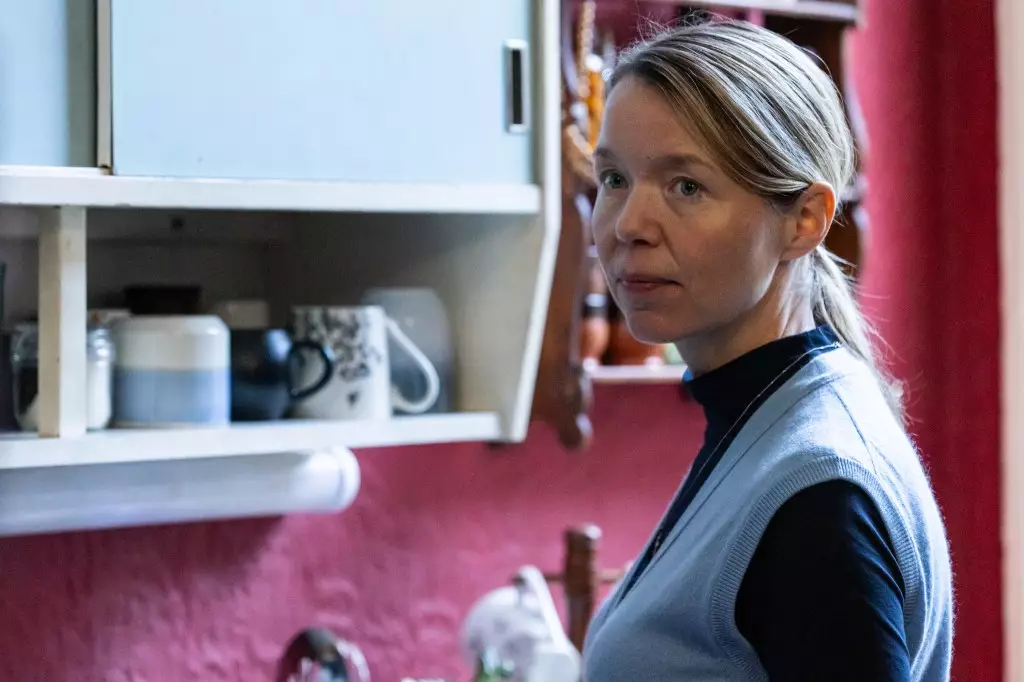In the current landscape of television, scripted dramas are increasingly leaning into raw, unvarnished storytelling that confronts societal taboos head-on. The upcoming BBC drama *Unforgivable*, penned by the formidable Jimmy McGovern, exemplifies this shift. Rather than shying away from uncomfortable truths, the series delves into the devastating effects of sexual abuse, compelling viewers to face difficult realities with empathy and honesty. McGovern’s reputation for crafting gritty, socially relevant content suggests that this show aims to challenge audience perceptions not just for entertainment but as a form of societal reflection. This deliberate choice to confront discomfort signifies a broader movement within the industry: art as a catalyst for awareness and change.
While some may argue that such portrayals risk sensationalizing or retraumatizing victims, the true power of this approach lies in its capacity to foster understanding. Authentic, unflinching narratives compel viewers to re-evaluate their preconceptions and cultivate a nuanced perspective. The series’ focus on characters like Joe, played by Bobby Schofield, and therapist Katherine (Anna Maxwell-Martin) demonstrates a commitment to exploring the psychological aftermath of trauma, emphasizing healing and accountability rather than mere spectacle. By anchoring the story in real emotional stakes, *Unforgivable* seeks to elevate the genre beyond escapism and into a domain where empathy becomes an active process.
Implications for the Industry and Society
The decision to produce such intense content reflects a larger societal demand for authenticity. Audiences today crave narratives that mirror their complex realities, prompting creators to rethink traditional storytelling paradigms. This shift challenges the notion that entertainment must always be light or superficial. Instead, high-profile projects like *Unforgivable* serve as proof that engaging stories rooted in truth can foster meaningful dialogue and promote social responsibility.
Furthermore, the involvement of seasoned professionals like Jimmy McGovern and Anna Maxwell-Martin underscores the importance of experienced voices pushing the boundaries of conventional TV. McGovern’s track record of tackling tough issues—such as in *Cracker* and *The Street*—suggests a deliberate intention to harness the medium’s influence for societal good. In doing so, the industry is slowly morphing into a platform for advocacy, where storytelling becomes a form of activism.
Conversely, critics might argue that such content walks a fine line, risking exploitation or desensitization. However, the responsible portrayal of sensitive topics necessitates skilled direction and thoughtful script development—elements that McGovern’s team seems poised to prioritize. The show’s setting in Liverpool, with its rich cultural history, adds another layer of authenticity, grounding the narrative in a real community context. This choice ensures the story remains relatable and impactful, transcending mere sensationalism to serve as a mirror for society.
The Broader Cultural and Media Landscape
As the media landscape evolves, so does the audience’s appetite for diverse, substantive content. The rise of streaming platforms and the proliferation of true-crime and documentary genres—highlighted by recent studies showing Australians’ obsession with factual content—indicate a societal shift toward seeking understanding through real stories. This appetite for authentic storytelling provides fertile ground for dramas like *Unforgivable* to thrive, blending entertainment with social consciousness.
Moreover, the genre’s evolution reflects a broader recognition that viewers are not passive consumers but active participants in cultural discourse. By engaging with these narratives, audiences can confront uncomfortable truths and perhaps catalyze real-world conversations on justice, mental health, and societal accountability. The industry’s willingness to produce such challenging content signifies a maturation—a move away from superficial entertainment towards a more responsible, insightful art form.
It’s also vital to recognize that this cultural shift is intertwined with technological advancements. Access to vast amounts of information and global storytelling platforms accelerates awareness and empathy. As streaming giants like BBC iPlayer and Netflix prioritize thought-provoking content, creators are prompted to deepen their storytelling in ways that resonate across cultural boundaries.
The emergence of intense, socially conscious dramas like *Unforgivable* demonstrates an industry at a crossroads—one where storytelling’s purpose extends beyond mere entertainment and toward meaningful societal impact. This trajectory highlights a future where honest, bold narratives serve as a catalyst for empathy, understanding, and ultimately, change. Such storytelling not only transforms the way we perceive difficult issues but also redefines the role of television as a mirror and molder of modern society.
